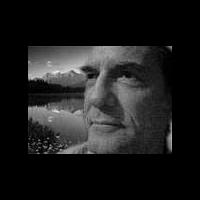Aportes: 8
Idioma: English
quickstopme (Mostrar perfil) 9 de marzo de 2008 22:05:25
Well I got a dictionary like many people suggested, the CEED by J.C. Wells. I saw a lot of places that generally sold them for $80, and I just got mine for $6, yippee!

And I got Robinsono Kruso. What are some other esperanto books that would be good to read?
Miland (Mostrar perfil) 10 de marzo de 2008 13:35:20
1. Vere aŭ Fantazie
2. La Verda Koro.
After that (or during) I suggest taking out a subscription to Juna Amiko.
erinja (Mostrar perfil) 10 de marzo de 2008 14:37:22
It's a semi-autobiographical story of a traveling salesman who uses all kinds of not-very-honest ploys to get people to buy stuff. It was written originally in Esperanto.
I generally recommend short stories for beginners, though. If you're at the point in the language where your reading is still slow and you need to look up a lot of words, it is incredibly frustrating and demoralizing if it takes you days to get through just a few pages of a 200-page book. Short stories are good because the payoff is a lot quicker. For short stories, I recommend the books by Sten Johansson, who has written several books of stories in original Esperanto. You can also find some of his stories online, if you do a search; it is a good way to see if you like his stuff before buying a book.
lagwagon555 (Mostrar perfil) 11 de marzo de 2008 08:51:08
I found it a LOT more pleasurable reading than 'Paŝoj al plena posedo', which is an original esperanto learners book. I really think it's a good idea to get a book that interests you, rather than a learners book. It gives you a lot more motivation. La Adventuroj is a book about libertarianism, so if you are interested in it, or can take criticism to collectivist ideas, then I really think it will be of huge interest. On the other hand, you might dismiss it as dirty-capitalist-pig-propaganda and burn it after the third page. But I really reccomend giving it a try!
By the way, just in case I didn't express enough, this book is easy enough for a beginner. The translators did a really good job, of converting the more tricky english words into esperanto ones. It was the first thing I read in Esperanto, so it's perfect for beginners.
Miland (Mostrar perfil) 11 de marzo de 2008 09:21:59
You can read La junaj detektivoj for free (and many other books) on the following website:
http://donh.best.vwh.net/Esperanto/Literaturo/Nove...
quickstopme (Mostrar perfil) 12 de marzo de 2008 02:53:07
 Great advice and suggestions
Great advice and suggestions billpatt1942 (Mostrar perfil) 13 de marzo de 2008 01:41:45
quickstopme:One of my first books was Winnie-La-Pu. I bought my copy from Kinko's for $5.62.
And I got Robinsono Kruso. What are some other esperanto books that would be good to read?
Here's the secret for finding books if you can't afford them. There are hundreds of esperanto novels, self teaching books, readers, etc., scattered throughout the U.S., including public libraries and University libraries, and some government libraries. If you know a title, say, Winnie-La-Pu, and it isn't in your library, walk boldly up to the librarian, and say "here on this paper is the name of a book, its author, date of publication, name of publisher", and any information you can dig up. "Please get me this book by means of an inter-library loan". I went to the librarian at the marvelous little public library in Marysville, TN (population somewhat over 3) and she let me know a few days latter that she located Winnie-La-Pu in the Chattanooga public library. I picked it up in Maryville, read it, liked it, found another copy at Kinko's. I returned the book to Maryville library, they returned it to Chatanooga. All transportation expense born by the library . Neat, cxu ne? I have also done this with a reference in a footnote to some obsure journal. Nashville public has a whole department of librarians eager to do this thing. A few days later I had a copy of the original work! - to take home and study.
I agree, pick a book that has an interesting subject. If it is difficult, that just means you attain fluency sooner, if you persist. Although, I laid La Alta Akvo aside for over five years, before I persisted. Life is interesting. All the online books that you can download and print out, gee, it's so hard to choose. And so cheap, if you don't like one, toss it and get another!
quickstopme (Mostrar perfil) 14 de marzo de 2008 00:56:31
At first I was like Marysville?? I live near there! But guess not, I'm in WA not TN


